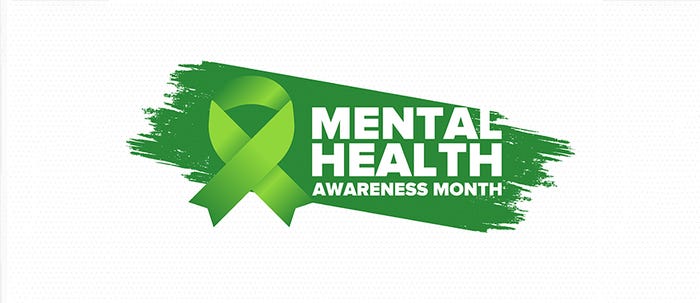Mental Health Awareness Month: 6 Steps for Pandemic Relief
When the stress of the past year meets anxiety over returning to the workplace, expert help is needed.

Shutterstock
“First, slow down and breathe to soak in the moments you’re experiencing now,” said USANA’s Kevin Guest. “Then apply a healthy dose of self-care by wrapping yourself up in nature and connecting with experiences that matter most to you, whether that be with friends, family or yourself alone.”
“Next, you have to believe in yourself, that you are good enough, that you can do it,” said Guest. “If you don’t believe in yourself, lean on my grandpa’s teaching: ‘Fake it until you make it.’ That’s a great way to gain confidence and propel forward with any task you face.”
Guest grew up in Montana close to friends and family who shaped his outlook.
“Another key is to live in the moment, enjoy the time you have now and to plan for the future with confidence,” Guest said. “From my experience, planning for the future is exceptionally smart, but worrying about the future yields no good thing.”
With a clock in his USANA office that has all the numbers replaced with the word, “NOW,” Guest believes it’s important to learn lessons from life experiences but not to worry about the past.
“Lift another person up, look outside of yourself and see who can use your help, your smile and even your simple greeting today,” said Guest. “When we lose ourselves in the service of others, we find strength and purpose, which energizes us to continue to progress toward happiness and accomplishments.”
Service is a core value of Guest, who voluntarily gave unpaid service to people in the Netherlands when he was 19 to 21 years old.
“Convince yourself that everything will work out for you just fine,” he said. “I’ve quoted a poem in my book called, ‘Things Will Work Out,’ which posits that when we look back at our lives, we will realize everything has indeed worked out. To continue that success, we should focus energy on current situations to ensure positive solutions. It’s a simple and powerful concept.”
Guest has found that an optimistic outlook even in the face of global challenges helps reset a person’s balance.
“Because we are social beings, the year in isolation has thrown our flow of sociality,” said Guest. “When we step back into a new normal world, many will likely be a bit wobbly stepping back into the office socially, we need to go easy on ourselves because it will all work out.”
Applying such practices can help today’s workers prepare for post-pandemic office work and live a life today in harmony with one’s core values.
“Because we are social beings, the year in isolation has thrown our flow of sociality,” said Guest. “When we step back into a new normal world, many will likely be a bit wobbly stepping back into the office socially, we need to go easy on ourselves because it will all work out.”
Applying such practices can help today’s workers prepare for post-pandemic office work and live a life today in harmony with one’s core values.
May is Mental Health Awareness Month. A report produced by the CDC shows the significant impact that COVID-19 has had on adults in the U.S. Between August 2020 and February 2021, those reporting recent symptoms of an anxiety or depressive order increased from 36.4% to 41.5%. Meanwhile, the percentage of individuals reporting unmet mental health care needs increased from 9.2%-11.7%.

USANA’s Kevin Guest
Ironically, as the pandemic is improving and workers are looking at returning to office settings, anxiety is spiking, not dropping.
Therefore, in honor of Mental Health Awareness Month, Kevin Guest is offering six practices to help workers ease back into an onsite work pattern. Guest is chairman and CEO of USANA Health Sciences. He authored the bestseller “All the Right Reasons: 12 Timeless Principles for Living a Life in Harmony.”
Scroll through our slideshow above to see what he recommends.
Editor’s Note: Suggestions are great, of course, but if you are in crisis, there are resources for immediate help:
Call 911
National Suicide Prevention Lifeline 1-800-273-TALK (8255) for English, 1-888-628-9454 for Spanish, or Lifeline Crisis Chat
National Domestic Violence Hotline: 1-800-799-7233 or text LOVEIS to 22522
Child Abuse Hotline: 1-800-4AChild (1-800-422-4453) or text 1-800-422-4453
National Sexual Assault Hotline: 1-800-656-HOPE (4673) or Online Chat external icon
Veteran’s Crisis Line: 1-800-273-TALK (8255) or Crisis Chat or text: 8388255
Disaster Distress Helpline: CALL or TEXT 1-800-985-5990 (press 2 for Spanish).
The Eldercare Locator: 1-800-677-1116 – TTY Instructions
Want to contact the author directly about this story? Have ideas for a follow-up article? Email Buffy Naylor or connect with her on LinkedIn. |
About the Author(s)
You May Also Like


